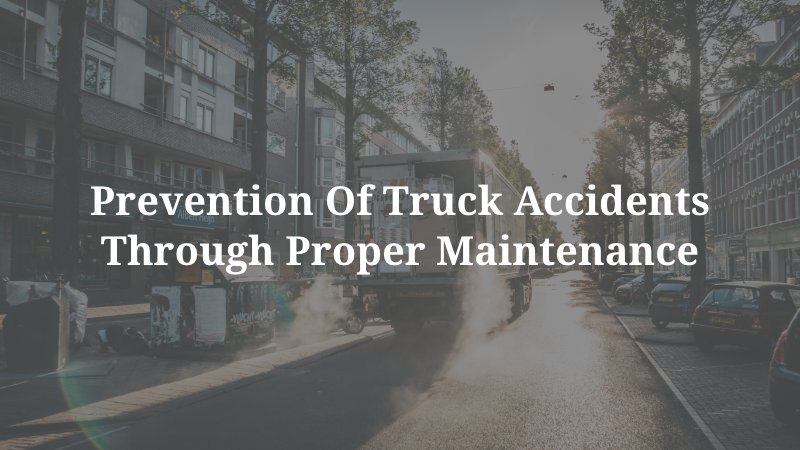The Importance of Proper Truck Maintenance: Preventing Accidents through Vehicle Inspections
Due to their size and weight, trucks pose a greater risk on the road compared to smaller vehicles. Frequent inspections and adhering to strict maintenance schedules are crucial to minimize potential hazards and keep them in optimal condition to prevent accidents. If you are involved in trucking accident due to the lack of proper maintenance, contact our Atlanta truck accident lawyers today for a free consultation.

Identifying Potential Hazards
Truck inspections provide an opportunity to identify potential hazards before they lead to accidents. Trained inspectors thoroughly examine various components of the truck, including brakes, tires, lights, mirrors, steering mechanisms, and more. By assessing these critical elements, inspectors can identify worn-out parts, leaks, faulty electrical systems, or other issues that could compromise safety. Identifying these hazards early on allows for prompt repairs or replacements, significantly reducing the risk of accidents caused by mechanical failures.
Addressing Mechanical Issues
Regular truck inspections help address mechanical issues that can contribute to accidents. For example, brake failures are a significant concern in the trucking industry. Inspections ensure that brakes are in proper working condition, with sufficient pad thickness, no leaks, and optimal response times. Tire conditions are also closely examined during inspections, as tire blowouts can lead to loss of control and collisions. Inspectors check for tread depth, signs of wear, and proper inflation to prevent blowouts.
Compliance with Regulatory Standards
Truck maintenance and inspections are not just recommended practices but also legal requirements. Regulatory bodies, such as the Department of Transportation (DOT), enforce safety regulations that require commercial trucks to meet specific standards. These regulations cover areas such as brakes, tires, lighting, emissions, and more. Regular inspections help ensure compliance with these regulations, minimizing the risk of accidents and ensuring the safety of both truck drivers and other road users. Non-compliance can result in penalties, fines, or even the suspension of operating licenses.
Preventing Load-Related Accidents
Improperly loaded or unsecured cargo often lead to collisions, especially during sudden maneuvers or when braking. Truck inspections include checks on the cargo securement, ensuring loads are properly distributed, adequately secured, and within legal weight limits. In addition, inspectors verify that tie-downs, straps, and other securing mechanisms are in good condition.
Extending Vehicle Lifespan and Performance
Regular inspections contribute to extending the lifespan and performance of commercial trucks. These vehicles endure extensive wear and tear due to long hours on the road, heavy loads, and challenging driving conditions. Inspections allow technicians to identify and address issues before they become major problems. This proactive approach helps prevent breakdowns, reduce repair costs, and maximize the lifespan of critical components.
Georgia Law on Inspections
The Federal Motor Carrier Safety Regulations (FMCSR) that Georgia uses as a guideline states the following regarding inspections:
Annual Vehicle Inspection
According to FMCSR Section 396.17, all commercial motor vehicles must be inspected annually. The motor carrier or a qualified inspector must examine the vehicle’s safety and operation, including brakes, tires, lights, steering, suspension, fuel systems, exhaust systems, coupling devices, and more. The results are then documented on a vehicle inspection report.
Driver Vehicle Inspection Report (DVIR)
FMCSR Section 396.11 mandates that drivers of commercial trucks conduct pre-trip and post-trip inspections and complete a Driver Vehicle Inspection Report (DVIR). Before operating a vehicle, the driver must inspect critical components such as brakes, tires, lights, steering, and coupling devices. If any defects or deficiencies are discovered, they must be noted on the DVIR, and repairs or maintenance must be completed as necessary by the motor carrier or its agent.
Even if inspections are not explicitly required at certain intervals, responsible trucking companies prioritize regular inspections as part of their maintenance and safety protocols.

